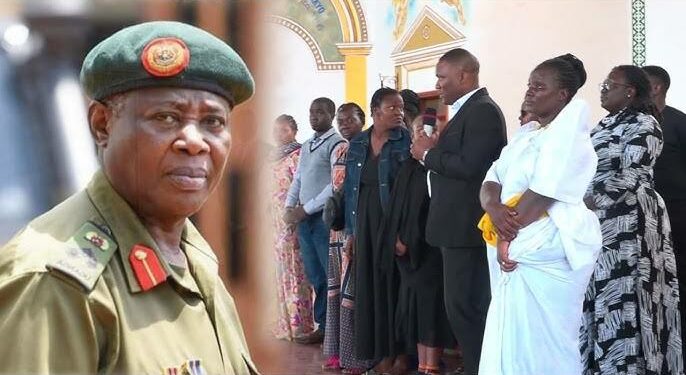In the heart of Uganda, where the echoes of history reverberate through the hills and valleys, the story of Joseph Tamale Mirundi and Gen. Proscovia Nalweyiso unfolds like a complex African tale, rich with lessons on humanity, forgiveness, and the enduring power of cultural norms.
Mirundi, a man whose voice thundered through television sets, radios, and YouTube channels, was known for his fierce outspokenness. He feared no one, not even the powerful figures like Gen Nalweyiso, Andrew Mwenda, Robert Kabushenga, and Minister Frank Tumwebaze. His words were sharp, his criticisms relentless. To his listeners, it seemed as though these individuals were his sworn enemies, bound to repay his harsh words with equal animosity.
Yet, life often teaches us that the most profound lessons come not from those who speak the loudest, but from those who act with quiet dignity. Gen Proscovia Nalweyiso, despite being the target of Mirundi’s frequent attacks, chose a path that few expected. When Mirundi fell ill, battling sickness for a month, it was Gen Nalweyiso who stepped forward. She paid his hospital bills, ensuring that he received the care he needed. And when Mirundi passed away, she was among those who stood by his family, offering support in their darkest hour.
In African traditional society, death is a moment of reflection, a time when old grudges are supposed to be laid to rest. It is believed that the living must forgive the dead, a practice that has been a cornerstone of African culture for centuries.
Gen Nalweyiso’s actions were a testament to this deeply held belief. She demonstrated that forgiveness transcends personal animosity, that it is not just a word but a living, breathing tradition that binds communities together.
However, the story of Mirundi is not just one of personal enmity and unexpected compassion. It is also a story of the complex relationship between individuals and their cultural roots. Mirundi, a son of Buganda, belonging to the Monkey clan, was a man who did not shy away from criticizing the very institutions that shaped him. His attacks on Mengo, the seat of the Buganda Kingdom, were seen by many as a betrayal, a strike against his own heritage.
Despite his role as a former presidential secretary who defended the NRM and President Museveni for years, Mirundi did not hesitate to criticize them when he felt it was warranted. To him, speaking out against Buganda was just another sip from the cup of truth he was committed to sharing. Yet, his candidness cost him dearly. Even in death, Mengo remained silent, withholding even a simple condolence message, a gesture that would have signaled forgiveness and reconciliation.
This silence from Mengo was deafening, a stark contrast to the actions of other mavericks like the late Sheik Noor Muzata Batte, who, despite his outspoken nature, was not abandoned by his community in death. For the people of Buganda, this raised questions that lingered in the air, heavy and unresolved. How could an institution that preaches peace and reconciliation fail to extend the hand of forgiveness to one of its own, even in death?
In the end, the story of Joseph Tamale Mirundi and Gen Proscovia Nalweyiso is more than just a tale of personal conflict. It is a reflection on the nature of forgiveness, the weight of cultural expectations, and the complexities of human relationships.
It reminds us that forgiveness is not measured by the size of the offense but by the depth of the heart that offers it. In this story, Gen Nalweyiso stands as a beacon of the values that have sustained African societies for generations, even as questions about the future of those values continue to be asked.
This narrative serves as a reminder that in a world where words can wound and actions can divide, the choice to forgive and support, even in the face of enmity, is the path that truly defines our humanity.
Do you have a story in your community or an opinion to share with us: Email us at editorial@watchdoguganda.com













